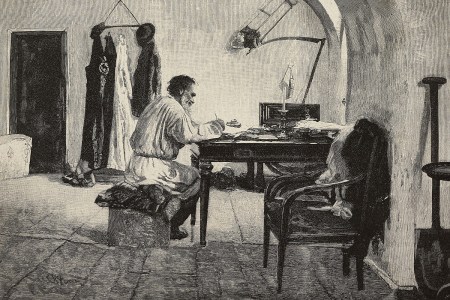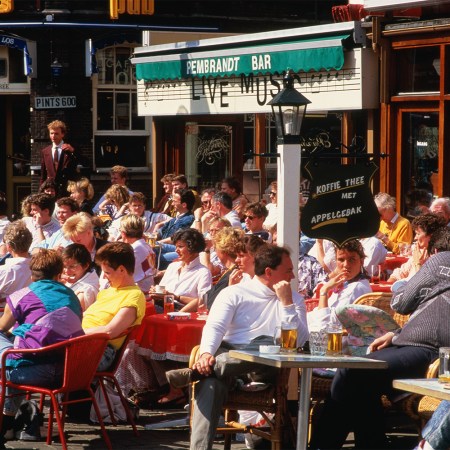New York-based humorist Fran Lebowitz once described the peculiar sensation of walking through the city in the smartphone era: “In New York, at a certain point, I felt I had the streets all to myself because I’m walking down the street looking up. [It’s like] the entire city [was] handed over to me.”
She continued to explain how, sometime in the 2010s, something fundamentally changed. Most pedestrians — not just people walking, but even people running or biking — were unable to look up anymore. They might’ve been crossing 7th Avenue at its busiest, but their eyes…and minds…were somewhere else entirely.
On one hand, this sort of behavior has severe logistical implications. “Distracted walking” casualties have skyrocketed in recent years, and we all know how dangerous texting and driving is.
But what does it say, psychologically, that so many of us are so determined to stay online, at the risk of our own lives? (Or at the very least: at the risk of missing out on most every atmospheric detail that might otherwise accompany a walk through a place so stimulatory as New York City?)
The train of thought brought me to an essay on Medium, by a writer named Leah Bury, who points out a clear, oh-shit truth: Nobody uses the internet slang “brb” anymore. Or “gtg,” for that matter. And that’s because few of us are ever really going anywhere, in the online sense. We don’t need to declare that we’ll be back. It’s more than implied.
The Life Hack That Beethoven and Ben Franklin Had in Common
Time to reintroduce your brain to some old friends: pen and paperDuring the initial heyday of instant messaging — the arc from AIM, to Facebook Messenger, to the day iPhone texts turned blue (which was back in 2011, if you can believe it) — it wasn’t uncommon at all for two individuals to message each other in rapid-fire succession. Conversations breathed in real time; messaging someone was an event in the day, which required at least some degree of attention and — assuming you liked the person — was often a lot of fun.
Those who came of age in the 2000s or 2010s will remember the specific thrill of chatting with a crush. There were stakes — and when there was chemistry, the conversation felt whip-fast, propulsive. It could have a paradoxical effect of slowing down time: you might look up two hours later, your heart fluttering, wondering where the hell you’d been. At this point, the final stage of a family road trip might be over. Or, just another weeknight, it was time to eat dinner or get started on homework. Gtg!
As Gen Z continues to chew through its collective anemoia (a term describes a cohort’s confusing nostalgia for an age they never experienced), pining over videos of blissfully phone-less high school parties in the 1990s, I, a younger Millennial, am sometimes startled to remember a time when the internet felt like a specific “place” — bordered by a screen door you could leave open for a bit, if you wanted, or a front door you could close shut until tomorrow.
There is no padlocking the situation we find ourselves in now, in which the average American picks up their phone 80 times per day — and nearly half of us describe feeling “addicted” to our devices, and “anxious” whenever we’re apart from them. Practically every single job now requires digital skills, and most of these necessitate a nonstop digital presence. Some employers have even started implementing tracking software, to make sure employees are sending messages and refreshing email all day long.
If “brb” is still alive, anywhere, it would be in the workplace — in its saddest and final, wounded form. (If “gtg” still exists, by the way, it’s in the world of online gaming.) I’m not suggesting we mourn the loss of the lingo, necessarily. Slang comes and goes. But certainly the disappearance of its everyday function. Life was more fun when we had these tools in our vocabulary. And so too, ironically, was the internet.
What can you do? I’m not so sure. Self-awareness can only go so far on this issue; the phones — and their many social media platforms — are designed too damn well. But I’d start with the simplest goal possible. Don’t look at it when you’re crossing the street. Leave it be, get to the other side. Then do that again. One block to the next, maybe starting to look up now. All of a sudden, you’re on a walk. The internet will be right back.
The Charge will help you move better, think clearer and stay in the game longer. Subscribe to our wellness newsletter today.




















